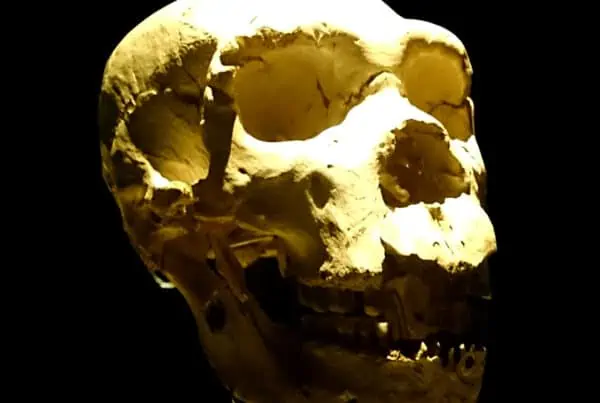Africans less smart?
Africans less smart, lower intelligene levels? That’s what a Swedish biologist living and working in Belgium implies. He’s quoted:
“if you are not African, your DNA contains… Neanderthal genes. These genes… were probably beneficial for humans, helping our species survive to the present day”
Recent Neanderthal fossil evidence is showing that they were a lot more advanced than previously believed. A cave art finding in 2018 in Spain, proved that they were capable of abstract thinking.
From livescience.com, Megan Gannon, March 23, 2019,
How Smart Were Neanderthals?
They worked stones and bones into tools and ornaments… They invented glue using tar from birch bark to attach wooden handles to stones. They made necklaces from eagle talons. Neanderthals used fire to cook food… Neanderthals also had spiritual and ritual practices…
in 2018, in a win for the Neanderthals, researchers reported that 65,000-year-old abstract images in Spanish caves must have been created by Neanderthals.
Now a prominent rising star Anthropologist Jente Ottenburghs in Sweden, is positing that through introgression, Neanderthal genes played a major role in intelligence for modern humans. Ottenburghs further suggests ethnic populations lacking Neanderthal DNA may not be as advanced.
Jente Ottenburghs is a Post Doctoral at the Dept. of Ecology, Genetics and Evolutionary Biology at the Uppsala Universitet in Sweden (a suburb of Stockholm). He specializes in aviary studies and migrations. His article appeared in frontiersin.org, on Aug. 9,
Why Do Some Humans Have Neanderthal DNA?
Neanderthal genes… are useful for us. Genes that humans receive from Neanderthals play roles in different parts of the body, including the brain…
The mixing of these two human species resulted in introgression, the exchange of DNA. Because humans and Neanderthals only had kids outside of Africa, you will not find Neanderthal DNA in present-day African people. However, in the rest of the world, people have about 3% Neanderthal DNA. [Emphasis added]
adaptive introgression happened with Neanderthal DNA. Some genes turned out to be helpful for humans and did not disappear from the human DNA.
Continuing:
The gene microcephalin (MCPH1), for example, ensures that the development of the brain goes according to plan. Perhaps this Neanderthal gene made humans smarter and better able to survive in unexplored territories. [Emphasis added]
if you are not African, your DNA contains a dash of Neanderthal genes. These genes stuck around because they were probably beneficial for humans, helping our species survive to the present day.
Ottenburghs also suggested Neanderthal genes were helpful to non-Africans in fighting off diseases.
Neanderthals, however, had coped with these diseases for thousands of years and their DNA had the right genes to fight the viruses and bacteria that caused these European diseases. When humans received Neanderthal DNA, they also got the genes to fight the new viruses and bacteria.
Short video on Neanderthal Cave Art from 65kya by Astor Highground of Norway, 2018 at YouTube.
FROM THE EDITOR:
Professor Ottenburghs was kind enough to give us this clarification. I am running it in full and completely un-edited.
Thank you for your message. It is nice to see that the article I wrote for children is also useful for adults.
To answer your question: I do not agree that African have a lower IQ due to lack of Neanderthal DNA. First, I don’t think you can capture a complex trait such as intelligence in one number. And second, intelligence is influenced by a complex combination of genetic and environmental conditions. Neanderthal DNA could make a small contribution, but so could certain genes that are specific to Africans.
All in all, a few Neanderthal genes will not make a big difference in terms of intelligence. And if you look at my statement in the article (“Perhaps this Neanderthal gene made humans smarter and better able to survive in unexplored territories”), you can see that I use the word “smarter” in the context of adaptation and not intelligence. Neanderthal genes might have been useful in local adaptation to the European climate and environment. If you would transfer these archaic humans back to Africa, they might not survive there because they adapted to another kind of environment. I hope this explanation clarifies my point of view on this topic.
Update!
Ottenburghs was a co-author on a paper published in Nature, in Oct. 2022,
Speciation and population divergence in a mutualistic seed dispersing bird
The limited variation in foraging traits indicates that local adaptation to pines likely played a minor role. Our study shows that close mutualistic relationships between bird and plant species might not necessarily act as a primary driver of evolution and diversification in resource-specialized birds.





Seems fair, I like that you printed the clarification in full, but given that it comes at the end, maybe you need some inter-article-edits/addenda to make it clear what the author claims he implies based on his clarification?
As a side note, it’s pretty clear from the historical record that the successful Euro immigration to the Americas vs. mostly unsuccessful in Africa, is due largely to the disease pool factor.
African Diseases slaughtered Euro’s , Euro diseases wiped out pre columbian Americans in profusion. So I like the comment that Neaderthal genes may have given an edge to early humans in local adaptation to Euro diseases, ( and similarly denisovian DNA in asia?) — Fred @AnonymousFred514 on Gab
Fair and useful analysis Eric I think you have nailed it. I enjoyed reading it